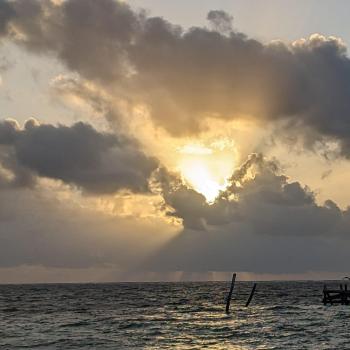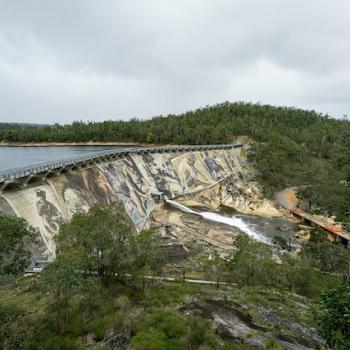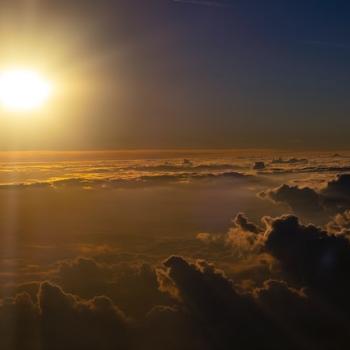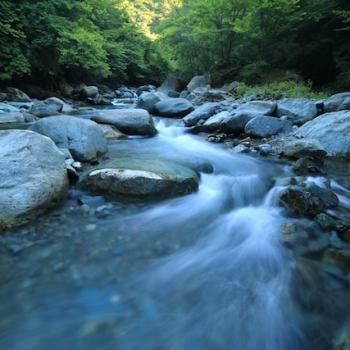My neighbor and I wave to each other through the trees; though we don’t even know each other’s name. After a snowstorm, we worm our way out. I admit it’s comforting to see another in the open, leaning on his shovel, his breath clouding as he looks again to the sky. There’s something primal in knowing that we each have a fire we huddle around. I love clearing the path to our door and leaving the light on. Of course, if my fire should go out, would he let me in? And for how long? This has been the human dilemma. We struggle with it every time we look away from the homeless. Different cultures have different ways of holding the question. The tribal leader in Africa has no word for orphan. And the Connecticut Puritan trains his daughter in etiquette and social registry. This is still different from the Holocaust survivor who leaves the door open for an angel he’s never seen while guarding against every noise. I lean on my shovel in the snow and my neighbor waves back. For which I am glad. And today, I don’t feel the need to know his name or story. Yet isn’t it in the steps between our friendly wave and our life around the fire that the work of real community waits?
On the far side of this question is the moment Elie Wiesel recalls of the death march he and thousands were forced to make in the ice and snow of the eastern European night; forced to run barefoot for hours toward Buchenwald. In anticipation of the Allied forces, the SS butted and pistol-whipped the emaciated herd on and on. If anyone slowed or stopped, they were trampled. If someone fell, they were shot. In the midst of this inexplicable hell, a poor soul near him stumbled to the hard ground and others nearby fell on top of him. But why? Because they knew he would be killed? Because without thinking they hoped that the SS wouldn’t know which of them to shoot? Because some in their exhaustion were ready to surrender their broken lives to keep the dark bullet from ending his life? There was too much going on and they just beat them all back up; shouting at them to keep on running.
Of all the harrowing, poignant and unspeakable things Wiesel witnessed as a fifteen year old, this small anonymous moment of community is what has stayed with me. I imagine it at the oddest times; while driving home from work, while walking the dog in snow. It won’t let go of me. I think because it is a painful koan that holds the essence of community. Kind and brave as it is brutal, this moment is a testament to the lengths we’ll go to care for each other; if left or pushed to our true nature. In such pain, in such desperate circumstances, in a frame of mind beaten and starved into numbness, what made these men literally throw their sorry lives into a pile of compassion? This is real knowledge we need to understand. For isn’t it also in the space between us and the fallen that the strength of true community waits?
From waving through the trees to sharing food around our fire to throwing our lives down to protect the fallen, the experiment continues.












